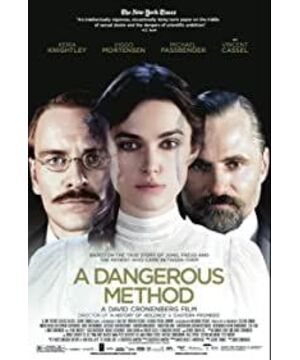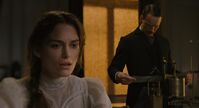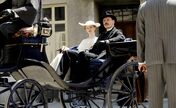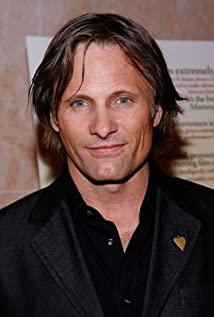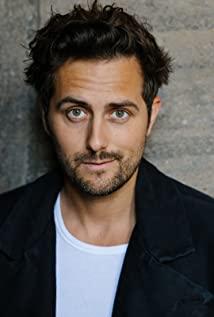"Spoilers Involved"
content
1 When Floyd fainted
2 The Freud problem
3 Oedipus
4 Sabina Spierling
5 When I say Freud and Jung, I really mean...
text
1 When Floyd fainted
When Freud fainted in the story of the movie "The Dangerous Method" because he heard a comment from Jung, I couldn't help sighing to myself that Freud was overreacting too! Did the psychoanalyst think so much that he would overreact to irrelevant discussions? Does he need a good rest, relax, and enjoy some rare inner and outer peace?
2 The Freud problem
Floyd is so controversial that there seems to be little peace on the subject. The theory he created speaks for itself, and it seems that anyone can quibble; he based his theory on experience to a large extent, but titled it "science", which seems to be the same as "science" does not match the usual definition; he treats the subconscious as a trash can, and then in turn firmly declares to the world that the subconscious is full of repressed content; , pistols, logs, beer bottles... it seems that everything is ultimately sex, even the cigars he can't quit; psychoanalysis in a broad sense, along with other theories, is still practiced today in the field of counseling and therapy However, you can believe that Freud, who has just started private practice and is still in the groping stage, once personally went into battle and gave his visitors a massage (Irene Ma Sith et al., Freud's Recliner); when later practitioners developed new theories, Freud was often stomped on, and he was so famous that even ordinary readers would comment on him issue critique.
However, "Common factors theory" and related views argue that any genre of theories can be valid because they all have some crucial things in common, such as empathy, listening , for example, have the opportunity to build a good consultation relationship and so on. With that said, even the infamous Freud himself can be included? Maybe even his views, based on common elements, lead to some truth about healing? And, in general and vague terms, when Freud fainted because of Jung, maybe he was right?
3 Oedipus
I began to revisit the specifics of Floyd's fainting. According to Jung's description, Freud fainted twice because of Jung. The first was Jung's interest in a possibly ancient swamp corpse dug up in northern Germany, an interest that upset Freud, who fainted at the table when he came up, and later told Jung about the corpse The nagging was because Jung wanted him to die, and Jung was quite surprised. The second was during the 1912 Munich Congress of Psychoanalysis, in which Jung had an argument with people about the history of Egypt, concerning the relationship between Amenhopt IV's destruction of the decoration on his father's tombstone and his attitude towards his father, This argument directly caused Floyd, who was listening, to faint from his chair. Jung mentioned that he also understood a common theme of the two faintings, which was "father-killing" (Jung, "Autobiography of Jung"). This second fainting is played out in the movie.
So if "fathericide" was the reason for Freud's fainting, did he make sense?
Freud was born in 1856 and Jung was born in 1875, the age difference between the two is nearly 20 years; it is said that Freud called Jung his "Crown Prince" despite the disapproval of his many followers ; Under his strong recommendation, it was Jung, not Freud himself, who served as the first president of the IPA (International Psychoanalytic Association) and edited the "Journal of Psychoanalysis"; Freud's point of view (Thomas Kersh, "To the modern man in pursuit of the soul"). However, Jung later broke with Freud, both professionally and personally, although he was not the first to break with Freud. Jung wrote in his autobiography, "Freud said to me: "Dear Jung, please promise never to give up sexology, this is the most fundamental thing. You see, we have to make it a creed, an unshakable fortress. He said it with enthusiasm, like a father saying, "Good son, promise me, go to church every Sunday!" "Later, the Swiss Jung even directly dreamed that the Austrian Freud was a haunted customs inspector of the Austro-Hungarian Empire, walking in the mountains on the border of Ruo!
In retrospect like this, I realized that I had completely overlooked the various contexts surrounding Floyd's collapse. Freud felt that Jung wanted him to die, and maybe he was right; Jung did want him to die, but this death was symbolic; as Jung said, when Freud was unwilling to take his own authority At the time of the adventure, Freud ceased to be authoritative in Jung's mind; perhaps at that time Freud was finally beginning to feel that Jung might also leave him, but he was far from accepting that , so he even fainted because of it; maybe it was because he couldn't accept it and couldn't change his attitude, so it later became a self-fulfilling prophecy; just like the famous Greek myth quoted by Freud- — Like the Oedipus story, Freud will lose his "crown prince" and Jung will kill his "king father". After the break, Jung fell into his own crisis. From time to time, he fell into a tide-like illusion, and it seemed that there was a certain danger of collapse. This can not help but remind people of Oedipus who killed his father and later learned the truth and blinded himself. binocular. Fortunately, and not simply, Jung emerged from the crisis a few years later.
4 Sabina Spierling
Looking back at these details, I also found that the role of Sabina Spierling was completely ignored by me before, as was Otto Gross. So where does Sabina fit in the story? On refocusing, the answer quickly became apparent: Sabina had both Freud and Jung strung together in the story; Otto was similarly. According to Thomas Kersh, Sabina kept in touch with both Freud and Jung at the same time, and had persuaded them to reunite, which is basically true. We can even see this most intuitively in the design of movie posters: Sabina is in the middle of the poster, and Freud and Jung are on the sides.
5 When I say Freud and Jung, I actually mean…
Why did I ignore Sabina in the first place? Maybe it's because I don't know her at all. But then again, do I understand Freud and Jung? The answer may also be no. There's even a Mrs. Jung in the story (although her character is believed to be a bit more deductive), but I'm mostly focusing on Freud and Jung. If I don't know Freud and Jung at all, what am I thinking? I guess, it is very likely that what I want to do is actually similar to the role of Sabina in the movie story, that is, to connect Freud and Jung, and even to unify the two contradictory two. people. Perhaps what I am really looking for is to unify some kind of opposites, and this opposites, symbolized by both Freud and Jung, are figuratively embodied. I also found that it wasn't the first time I wanted to do something like this, and I wasn't the only one. Perhaps in the perfectly round Tai Chi Yin-Yang diagram, we can find the image expression of this fusion of opposites.
That being the case, can I find a way for myself to unify the images of the two? I found that, in fact, in the autobiography of Jung I had read, I could find a way of unification. Jung wrote a separate chapter for Freud in his autobiography, at the end of which Jung wrote:
"Freud's greatest achievement may be that he took neurotic patients seriously and deeply explored their unique individual psychological state. It can be said that he can see through the eyes of the patient, and his understanding of the disease is beyond the level of human beings. In this regard , he has no preconceivedness, he has the guts, and as a result overcomes a lot of prejudice. Like the prophets of the Old Testament, he sets out to overthrow the false gods, to remove the veils of hypocrisy and deceit, and ruthlessly to rot the age The mind is exposed in broad daylight, unafraid that such audacity will be unpopular. He uses this to give our culture the impetus to find access to the subconscious. He affirms that dreams are the most important source of information about the development of the subconscious, making it seem The irretrievable treasure is saved from disappearance and oblivion. He empirically demonstrated the existence of a subconscious mind, which had previously existed only as a philosophical hypothesis, that is, in the philosophies of Carl Gustav Carus and Edward Hartmann. middle.
With just a philosophical reflection, it may be said that, despite more than half a century of confrontation with subconscious ideas and their consequences, today's cultural consciousness has not yet embraced them. Our mental life has two poles, and reaching this general basic understanding is still the task of the future. "
View more about A Dangerous Method reviews


